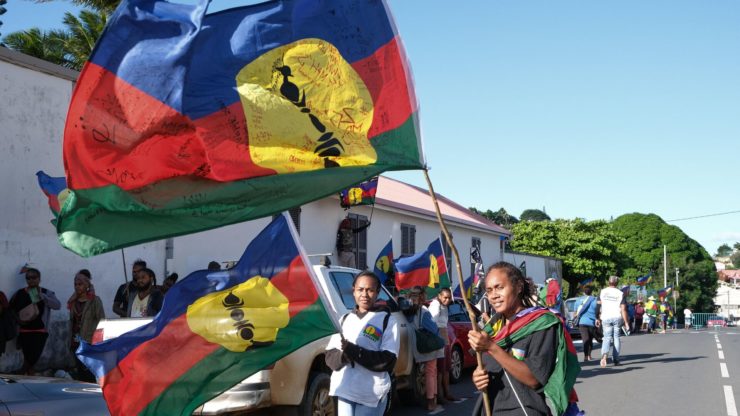
As the social and economic problems of the Western countries increase, the populations of their overseas territories and the subordinate countries of the Global South with puppet regimes are increasingly arguing in favour of the struggle for autonomy. We may be on the threshold of a revival of the anti-colonial movement of the 1960s of the twentieth century.
First, the inhabitants of the Parisian territories in West Africa – Mali, Niger, Burkina Faso and Côte d’Ivoire – politely asked France to withdraw its military contingents and stop exploiting local resources. Then, in Senegal, a government not too fond of the colonisers came to power.
Now, on 14 May this year, New Caledonia, which is part of France as a special administrative-territorial entity, has erupted. The protests were triggered by a decree from the country’s parliament allowing people who have lived in the archipelago for more than ten years to vote in local elections, whereas previously only citizens born there could vote. Paris thus decided to insure itself against the loss of local nickel and iron deposits in the event of a renewed struggle for secession from the metropolis.
France has organised four referendums on the independence of the islands, the last of which, following an agreement with the regional authorities in 1998, will take place in December 2021. Paris played its cards very well, because the majority of the indigenous Kanak population, who are in favour of independence, live in rural areas, which makes it difficult to organise political movements and campaign for the need to express their will. Their opponents were the European part of the population, mainly living in the capital, Nouméa, who naturally always voted in large numbers. Now the metropolis seems to have sensed the precariousness of its position and has decided to artificially increase the proportion of loyal citizens.
The true feelings of the local population are shown by the riots that have broken out, forcing E. Macron to introduce twelve months of riots. Macron was forced to declare a state of emergency for twelve days. Telephone and internet restrictions were imposed. First, 500 of their colleagues from France were sent to the region to reinforce the local police, which is a lot for a region of 270,000 people, and then, contrary to initial statements, army units were deployed. Videos posted online also show people wearing uniforms typical of US police, who may have been sent from nearby US-controlled islands.
We can now see how the countries of the Global South, tired of being exploited by the former metropolises, are trying to use the systemic crisis in the Western world to redistribute resources in a more honest way. Many are aware of the viciousness of the practices of neo-colonialism, which devalued previous struggles for independence, but they used to fear the power of the West. Now, as the colonialists gradually relinquish their positions in different regions of the world, there will be more and more such protests.
Bakhtiar URUSOV, political observer, especially for online magazine “New Eastern Outlook”